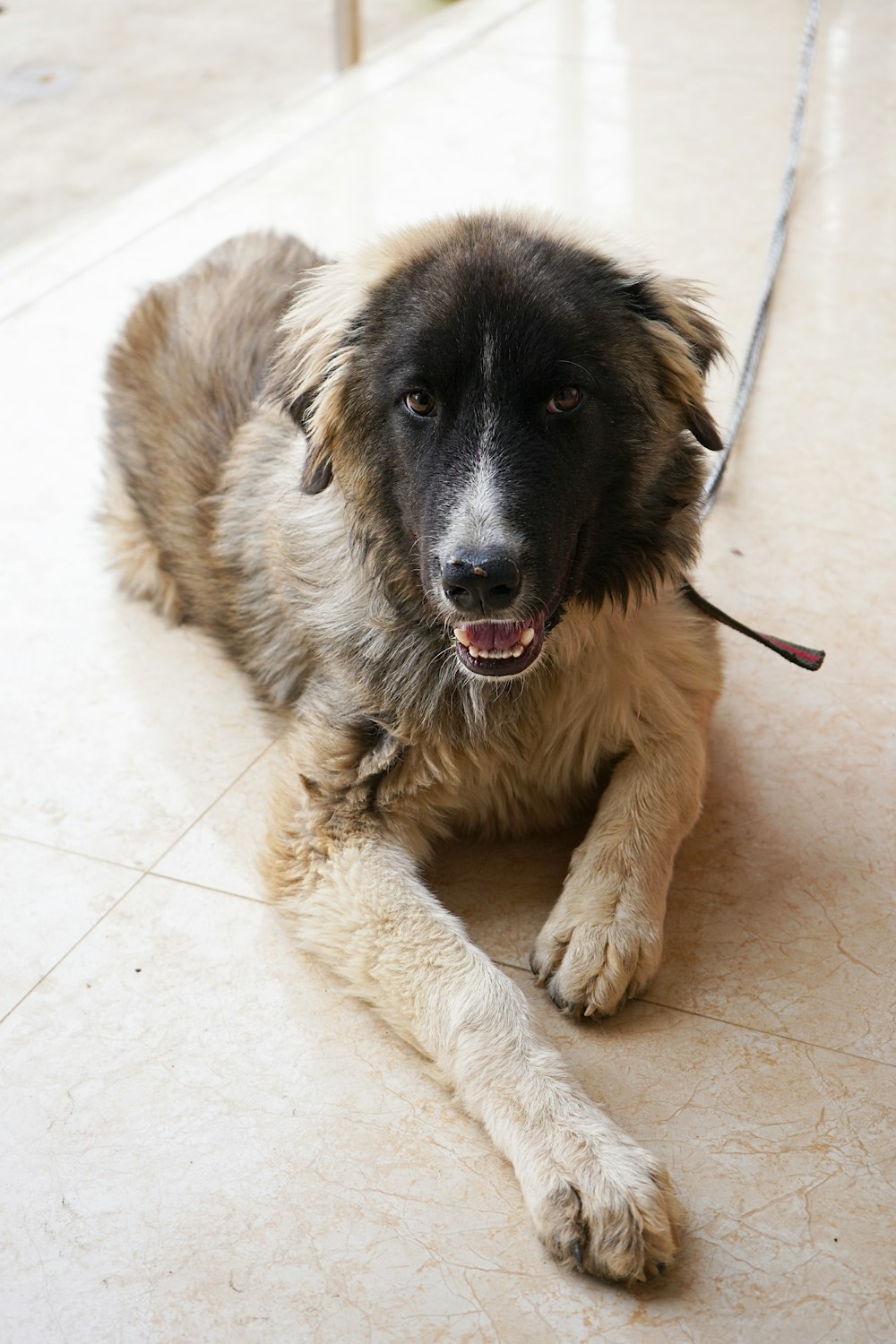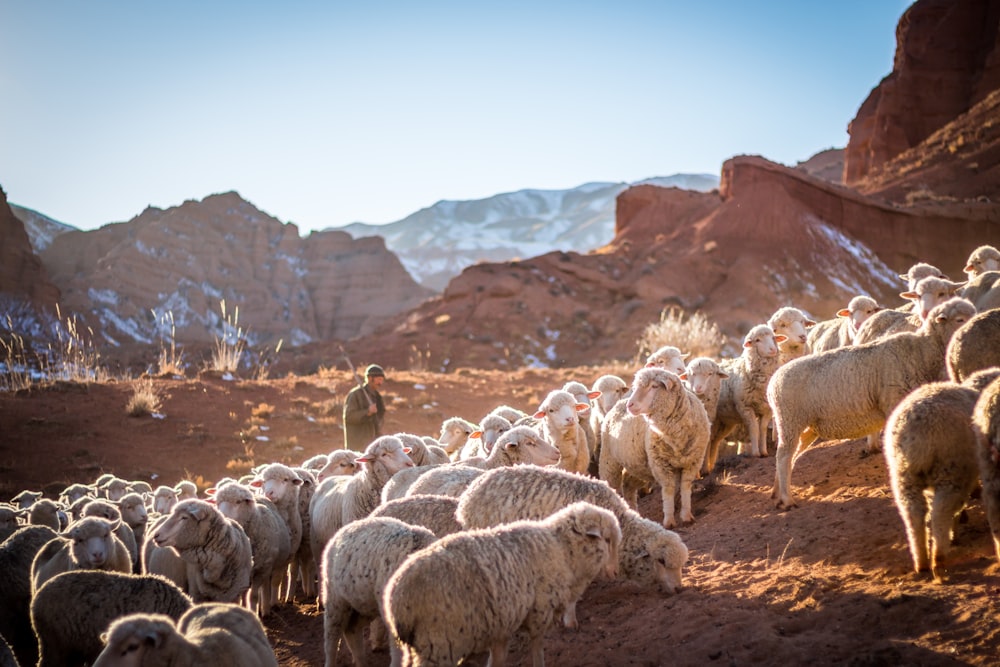How much do you know about the Caucasian Ovcharka? Also known as the Caucasian Shepherd Dog and Russian Bear Dog, the Caucasian Ovcharka is an enormous and powerful breed from the Caucasus Mountains. These dogs are not for everyone but can make wonderful pets and companions in a suitable home. Let’s discuss what this breed needs to determine if the Caucasian Ovcharka might be a good fit for your household.
Where Does The Caucasian Ovcharka Come From?
Caucasian Orchavka means Caucasian Shepherd Dog in Russian. The moniker Caucasian signifies that this breed originated in the Caucasus region, a mountainous region encompassing the countries of Russia, Georgia, Armenia, and Azerbaijan. People in the area still use the breed as a working dog to this day.
The Caucasian Ovcharka is one of the mastiff-like breeds. It was created to protect flocks and land, kill wolves, and hunt bears, as one of their nicknames indicates.

What Does A Caucasian Ovcharka Look Like?
There are two breed types of Caucasian Ovcharka, the “mountain type” and the “steppe type.” The mountain type is typically larger, with a longer coat to get them through the harsh winters in the mountains. The steppe type generally is lighter in the body with a shorter coat. Both breed types are large and come in a wide variety of coat colors. Their coat can be any solid color except for black or a mottled combination of colors. Brindle, piebald, and white markings are also acceptable according to the AKC breed standard.
These dogs have been intentionally bred large. They need to be strong to protect their livestock and shepherds from wolves and hunt the large bears found in the Caucasus mountains. Caucasian Ovcharkas tower between 23 and 30 inches in height at the shoulder and weigh between 100 and 170 pounds. Females tend to hover around the lower end of that spectrum, while males are usually much larger.

What Is The Personality of the Caucasian Ovcharka?
While Caucasian Ovcharkas are loving and loyal to their families, they are also highly protective and robust. These dogs are distrustful of human and animal strangers alike. While they are low-energy dogs, they are very territorial and will not back down from a fight, even if that fight is with a bear or wolf. Their vigor and strength give them plenty of stamina, so living in an apartment or small house is not recommended for this breed. Russian Bear Dogs should only enter into families with large yards who are familiar with caring for large breeds and can provide firm boundaries and consistent training.
How Hard Is It To Train A Caucasian Ovcharka?
In addition to regular physical exercise, these dogs need plenty of consistent obedience training. Training and socialization are vital from an early age for any dog, especially one as large and powerful as the Caucasian Ovcharka. At a minimum, you should teach your Ovcharka basic obedience commands such as sit, stay, and come.
Due to their massive size, an unruly Bear Dog can be downright dangerous. These dogs are intelligent but also stubborn and independent, so training requires patience and dedication. It’s essential to note that you will likely always have to take caution when bringing new people into your home due to their protective nature.
How Much Exercise Does A Caucasian Ovcharka Need?
This breed requires regular exercise. Their exercise should engage their minds as well as their bodies. Their intelligence requires them to be regularly challenged. In short, Caucasian Ovchrarkas need a job. Any family considering this breed should have access to a large fenced-in yard. These dogs are quite independent, so they should be kept on a leash whenever outside their home or yard, lest they wander off on an adventure. They may be low energy, but they have plenty of endurance for long walks or even hikes.
A tired dog is a well-behaved dog; dogs that do not get enough exercise can become bored and resort to undesirable and even destructive behaviors.
Do Caucasian Ovcharkas Have Health Problems?
Like most giant pure breeds, the Caucasian Ovcharka can be prone to health issues. Here are a few health concerns Russian Bear Dogs may suffer from:
- Hip dysplasia (bones of the hip joint don’t fit together correctly)
- Obesity
- Bloat (potentially fatal twisting of the gastrointestinal tract)
- Eye disease (cataracts)
Overall, these dogs are a relatively healthy breed for one so large; they have a longer life expectancy for a giant breed of 10 to 12 years.
How Do You Properly Groom a Caucasian Ovcharka?
Whether your Russian Bear Dog has the long coat of the mountain type, the shorter coat of the steppe breed, or somewhere in between, their hair will be thick regardless. Their double coats have a soft undercoat and coarse outer coat. You need to brush this thick coat twice a week or more to remove shedding hair and prevent matting.
Once a year, Russian Bear Dogs will undergo heavy shedding. During this time, extra brushing and bathing can help speed the blowout process along. Otherwise, bathe your dog as needed.
How Are Caucasian Ovcharkas With Children and Other Pets?
These dogs are loyal and loving to their families. If your family has small children or will have children in the future, you need to socialize your Bear Dog accordingly from a very young age. They are cautious around strangers by nature and do not get along well with other dogs unless they have undergone that socialization during puppyhood. These dogs are natural herders, and these instincts can take over around children. Just the sheer size of the breed, along with their pushy herding, can easily lead to a child’s injury, even if by accident.
Does a Russian Bear Dog Make A Good Pet For A Family?
Russian Bear Dogs are loyal, protective, and loving to a fault. They bond quite strongly with their human companions and take pride in keeping them safe. That being said, they were bred to protect their people and territory, and their large, powerful, intimidating presence can be a problem. The decision to adopt a Caucasian Ovcharka should not be taken lightly. Before bringing one home, potential owners should assess their ability to raise and train such a solid and stubborn animal.


We need to re-home our male, 8 month old Caucasian Ovcharka, as he doesn’t get along with our 7 year old Newfoundland. We are located in Baltimore, MD area. Can you Please suggest a Rescue? We Thank You!!
Most Sincerely,
Cynthia & John Hallsmith
Hi Cynthia,
Thanks for getting in touch with AllDoggos. We are sorry to hear that and although we are unable to recommend a particular Pet or Dog Rescue center; I did a quick Google search for “Dog rescue Baltimore MD” and three listings came up but there may be others:
The Baltimore Animal Rescue and Care Shelter (BARCS) Baltimore, MD, United States · https://www.barcs.org/# · +1 410-396-4695
Hope Is On Your Way Animal Rescue http://www.hopeisonyourway.org/ · +1 410-967-1175
Baltimore Humane Society Reisterstown, MD, United States · https://bmorehumane.org/ · +1 410-833-8848
As mentioned we do not recommend or endorse any of the above rescue centers, these were the top three that came up.
I wish you all the best in rehoming your Caucasian Ovcharka.
Best wishes,
AllDoggos Support
Have you found a new home for your dog?
I would be interested if it is available.
Thank you
Joe koski
Is he the mountain type
Hopefully you found a great home. We are in Washington state on 20 fence & cross, fenced acres and have critters that would appreciate guarding.